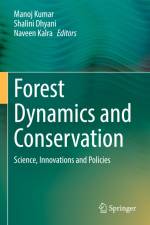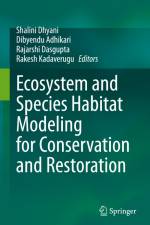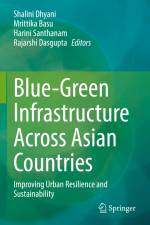von Shalini Dhyani
186,00 €
This edited book is focused on SDG 15. This volume covers aspects of species and ecosystem modeling in understanding the complexity of ecological systems, restoration, protected area management, and species conservation. The book follows a systematic and situation-sensitive approach to discuss ecosystem and species modeling tools, approaches, science, case studies, opportunities, and gaps for enhancing conservation efforts, ensuring ecosystem resilience, and addressing sustainability issues. The book emphasizes on science, innovations, case studies, and strategic relevance as main pillars of using ecosystem and species modeling tools and implementing the outcomes and results. In addition, clear conceptual frameworks, elaborated methodologies, and their applications are included to support policy planning and interventions to reduce and reverse human encroachment in human-dominated natural ecosystems, their degradation, and loss of important species and ecosystem services. Essential information with a special focus on advances and opportunities in advancing the implementation of results and outputs of the modeling tools, challenges and constraints for addressing loss of ecosystem services, designing and implementing sustainable landscape restoration, environmental risk assessment, and finally understanding policy implications and concerns for mainstreaming modeling results in conservation planning and decision-making is included in the book. Further topics include ultimate translational value of modeling tools and efforts across transitional ecosystems and species habitat to provide better evidence to influence the nature-based solutions (NbS) and ecosystem health assessment using Red List of Ecosystems (RLE). The emerging roles of integrative socio-ecological as well as techno-cultural factors in promoting the relevance of ecosystem and species modeling is one of the key features of this book. This edited volume is of interest and useful to researchers, students, scholars, policy makers, forest managers, consultants, and policy makers in the fields of protected area management, forest department, conservation, modeling, climate change, and sustainability science, and also authors engaged in IPBES, IPCC, and several other assessments.



